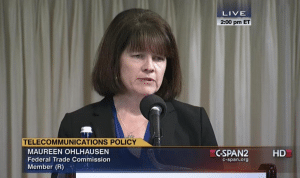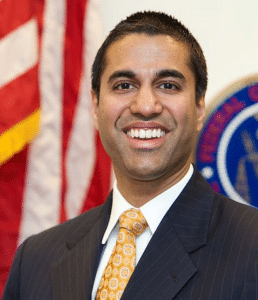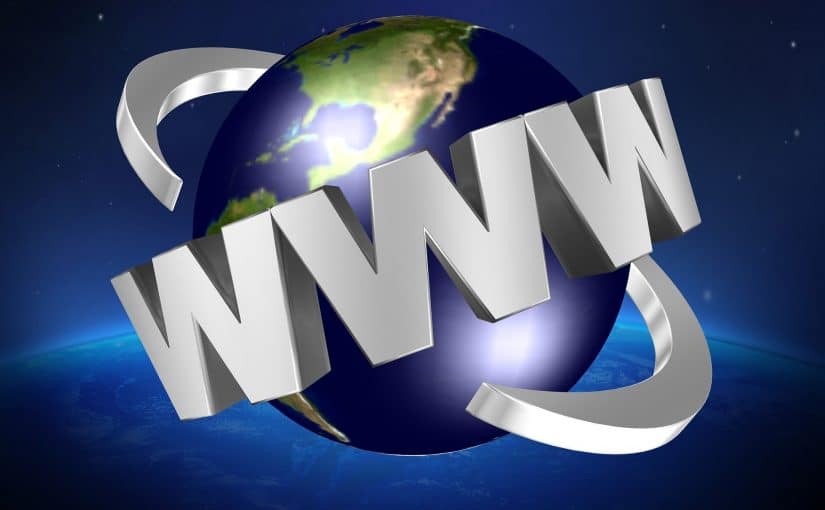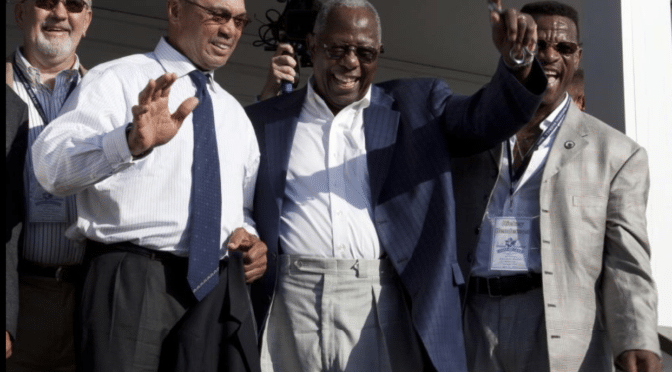The Federal Trade Commission (FTC) until very recently served and protected consumers. But a bizarre statement, what looks like an outright lie, about the Internet and consumer rights from the Acting Federal Trade Commission Chairman Maureen Ohlhausen turned the notion of protection on its head.

Ohlhausen praised a proposal by Trump’s Federal Communications Chair Ajit Pai to stop treating the Internet as a public utility. Pai wants to abolish the so-called net neutrality rule. The Obama Administration pushed for net neutrality in 2015 to make sure everyone has equal access to the Internet. The regulation on the books prevents the unfair creation of fast and slow lanes that would allow big companies to favor their streaming services over anyone else’s.
But Pai, a former Verizon attorney, thinks the government should not treat high-speed Internet like a utility. (The government regulates utilities.)

Federal Communications Commission Photo, Official Portrait Ajit Pai, Public Domain
While Pai didn’t flesh out his plan for change, in a speech on April 26, 2017, at the Newseum, he made it clear that he opposes regulation. He said, “Without the overhang of heavy-handed regulation, companies will spend more building the next generation networks. As those networks expand, more Americans, especially low-income rural and urban Americans, will get high-speed Internet access for the first time.”
Ohlausen said, “I welcome Chairman Pai’s announcement as an important step toward restoring the FTC’s ability to protect broadband subscribers from unfair and deceptive practices, including violations of their privacy. Those consumer protections were an unfortunate casualty of the FCC’s 2015 decision to subject broadband to utility-style regulation. I look forward to working with Chairman Pai and other stakeholders to return to broadband subscribers the consumer protections they deserve.”
Pai’s proposed changes and their endorsement by the leader of the FTC stand in stark contrast to the thoughts of those who pushed for an open Internet uncontrolled by big companies like Verizon, AT&T and the rest of corporate America that has a financial interest in corporations controlling the Internet.
David Segal of DemandProgress.org called Pai’s statement “outrageous.”
Segal said, “The announcement is outrageous because the FCC’s 2015 Open Internet Order, classifying internet provision under Title II, is a commonsense measure to safeguard the open internet that so many depend on and that has been upheld by the courts. Millions of Americans as well as internet companies, startups and innovators have supported the order. The order’s main opponents are large ISPs that have made it clear they want to subvert the public interest by manipulating internet traffic to benefit corporate bottom lines.”
American Library Association Director Julie Todaro also spoke out against a rollback. She said, “The American Library Association (ALA) and the Association of College & Research Libraries (ACRL) firmly believe that preserving an open Internet is essential to all Americans’ freedom of speech, educational achievement, and economic growth.”
Getting back to the FTC and its mission. The press release praising the notion of dismantling consumer protections ended with a statement that essentially said black is white:
“The FTC is the nation’s primary consumer protection agency and the most active consumer privacy and data security enforcer in the world.”




